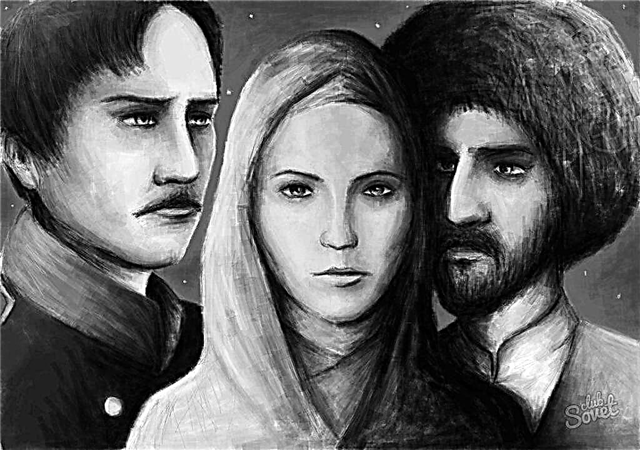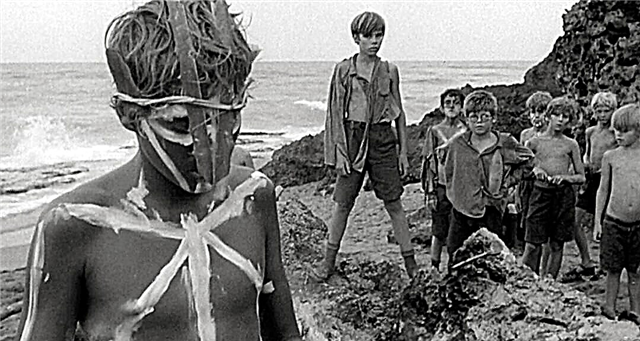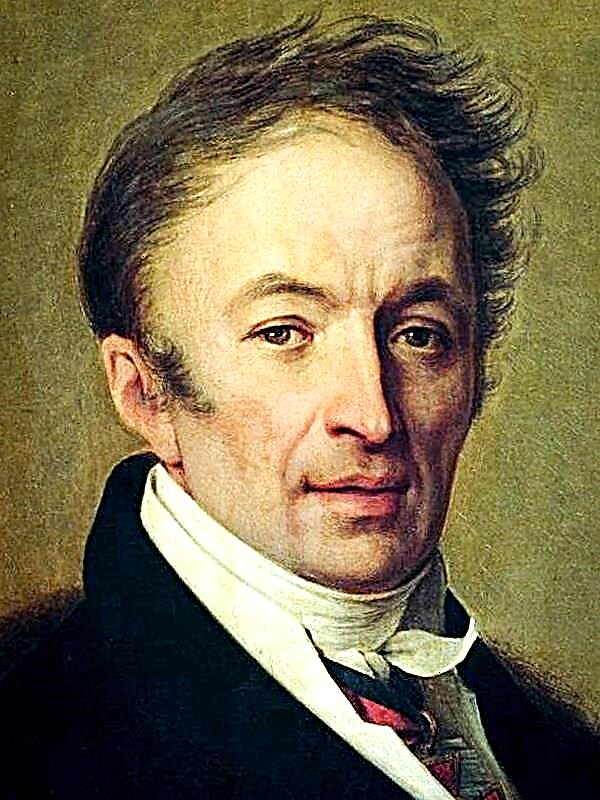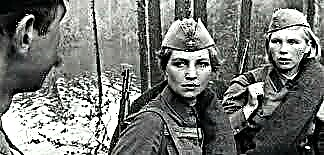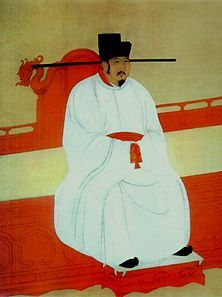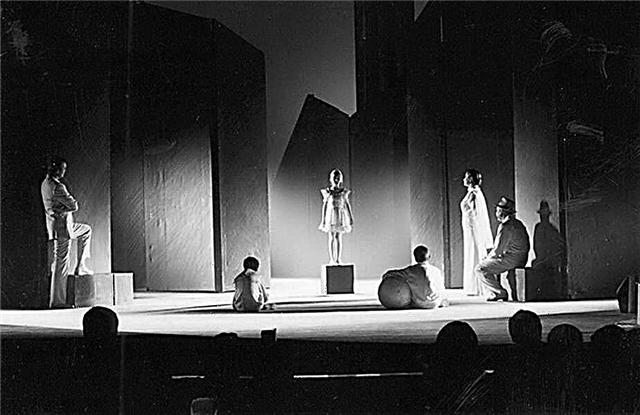The plot is a free interpretation of an ancient Greek myth. The Troyan prince Paris has already abducted Helen of Spartan, but the war has not yet begun. King Priam and Hector are still alive, did not become Andromache’s slaves and the clothing Cassandra, the young Poliksen did not die under the sacrificial knife, does not sob over the ruins of Troy Hekub, mourning the dead children and her husband. There will be no Trojan war, for the great Hector, having won a complete victory over the barbarians, returns to his hometown with one thought - the gates of the war must be closed forever.
Andromache assures Cassandra that there will be no war, for Troy is beautiful, and Hector is wise. But Cassandra has its own reasons - the stupidity of people and nature makes war inevitable. The Trojans will die because of the ridiculous belief that the world belongs to them. While Andromache surrenders to naive hopes, rock opens his eyes and stretches - his steps are heard quite close, but no one wants to hear them! To the joyful exclamation of Andromache, greeting her husband, Cassandra replies that this is rock, and she tells the terrible news to her brother - soon a son will be born to him. Hector admits Andromache that he used to love war - but in the last battle, bending over the corpse of the enemy, he suddenly recognized himself in him and was horrified. Troy will not fight the Greeks for Elena - Paris must return her in the name of peace. After asking Paris, Hector comes to the conclusion that nothing irreparable happened: Elena was abducted while swimming in the sea, therefore, Paris did not dishonor the Greek land and the conjugal home - only Elena’s body was reproached, but the Greeks have the ability to turn any unpleasant into a poetic legend for them a fact. However, Paris refuses to return Elena, citing public opinion - all of Troy is in love with this beautiful woman. Decrepit old men climb the fortress wall in order to look at it with at least one eye. Hector becomes convinced of the truth of these words very soon: Priam, whitened with gray hair, is ashamed of young Trojan warriors who have forgotten how to appreciate beauty, the poet Demokos calls to lay hymns in her honor, the scientist Geometr exclaims that only thanks to Elena the Trojan landscape found perfection and completeness. Women alone stand up for peace: Hekuba is trying to appeal to healthy patriotism (it’s indecent to love blondes!), And Andromache extols the joys of hunting - let men practice valor by killing deer and eagles. Trying to break the resistance of fellow countrymen and relatives, Hector promises to persuade Elena - of course, she will agree to leave to save Troy. The beginning of the conversation inspires Hector with hope. It turns out that the Spartan queen is only able to see something vivid and memorable: for example, she never managed to make out her husband Menelaus, but Paris looked great against the sky and looked like a marble statue - however, recently Elena began to see him worse. But this does not mean that she agrees to leave, because she does not succeed in seeing her return to Menelaus.
Hector paints a colorful picture: he will be on a white stallion, Trojan soldiers in purple tunics, the Greek ambassador in a silver helmet with raspberry plume. Does Elena not see this bright noon and the dark blue sea? But does she see the glow of a conflagration over Troy? Bloody battle? A disfigured corpse drawn by a chariot? Could it be Paris? The queen nods: she cannot make out her faces, but she recognizes the diamond ring. But does she see Andromache mourning Hector? Elena does not dare to answer, and the infuriated Hector swears to kill her, if she does not leave, let everything around him become completely dull, but it will be peace. Meanwhile, bad news messengers hurry to Hector one after another: the priests do not want to close the gates of the war, because the insides of the sacrificial animals forbid it, and the people worry because the Greek ships raised the flag in the stern - thereby causing a terrible insult to Three! Hector bitterly tells his sister that there is a defeat behind every victory he won: he subdued his will both Paris, Priam, and Elena - and the world is slipping away anyway. After his departure, Elena confesses to Cassandra that she did not dare to say earlier: she clearly saw a bright red spot on the neck of Hector's son. At the request of Elena, Cassandra calls up Mir: he is still handsome, but scared to look at him - so he is pale and sick!
At the gates of the war, everything is ready for the closing ceremony - only Priam and Hector are waiting. Elena flirts with the young Tsarevich Troilus: she sees him so well that she promises a kiss. And Demokos urges fellow citizens to prepare for new battles: Three had the great honor of fighting not with some miserable barbarians, but with the trendsetters - the Greeks. From now on, the place in history is provided to the city, for the war is similar to Elena - both of them are beautiful. Unfortunately, Troy is frivolous of this crucial role - even in the national anthem only peaceful joys of the farmers are sung. In turn, the Geometer claims that the Trojans neglect epithets and will not learn how to insult their enemies. Refuting this claim, Hekuba violently stigmatizes both ideologists, and compares the war with an ugly and stinking monkey ass. The dispute is interrupted with the advent of the king and Hector, who has already enlightened the priests. But Demokos prepared a surprise: the expert on international law Buziris authoritatively declares that the Trojans themselves are obliged to declare war, because the Greeks placed their fleet facing the city, and the flags were hung aft. In addition, a violent Ajax burst into Troy: he threatens to kill Paris, but this insult can be considered a trifle in comparison with the other two. Hector, having resorted to the previous method, invites Buziris to choose between a stone bag and a generous payment for his labors, and as a result, a wise lawyer changes his interpretation: the flag at the stern is a tribute to the sailors for the farmers, and face-building is a sign of emotional affection. Hector, who won another victory, proclaims that the honor of Troy is saved. Addressing the fallen on the battlefield, he calls for their help - the gates of war are slowly closing, and little Polyxena admires the power of the dead. A messenger appears with the news that the Greek ambassador Ulysses went ashore. Demokos plugs his ears in disgust - the terrible music of the Greeks offends the hearing of the Trojans! Hector orders Ulysses to be received with royal honors, and at that moment a tipsy Ajax appears. Trying to get Hector out of himself, he vilifies him with the last words, and then hits him in the face. Hector blows it stoically, but Demokos raises a terrible cry - and now Hector gives him a slap in the face. The delighted Ajax immediately penetrates Hector with friendly feelings and promises to resolve all misunderstandings - of course, provided that the Trojans give Elena away.
Ulysses begins negotiations with the same requirement. To his great amazement, Hector agrees to return Elena and assures that Paris did not even touch her with a finger. Ulysses ironically congratulates Troy: in Europe there was a different opinion about the Trojans, but now everyone will know that Priam’s sons are worth nothing like men. There is no limit to the indignation of the people, and one of the Trojan sailors paints in paints what Paris and Elena did on the ship. At this moment, the messenger Irida descends from heaven in order to proclaim to the Trojans and Greeks the will of the gods. Aphrodite orders not to separate Elena from Paris, otherwise there will be a war. Pallas orders them to be separated immediately, otherwise there will be war. But the lord of Olympus Zeus demands to separate them, not to separate: Ulysses and Hector must, left face to face, solve this dilemma - otherwise there will be a war. Hector honestly admits that he has no chance in a verbal duel. Ulysses replies that he does not want to fight for Elena’s sake - but what does the war itself want? Apparently, Greece and Troy were chosen by rock for a deadly battle - however, Ulysses, being curious by nature, is ready to go against fate. He agrees to take Elena, but the path to the ship is very long - who knows what will happen in these few minutes? Ulysses leaves, and here the drunk Ajax appears to smithereens: not listening to any exhortations, he tries to kiss Andromache, who he likes much more than Elena. Hector is already brandishing a spear, but the Greek is nevertheless backing away - and Demokos bursts in with a cry that the Trojans were betrayed. Just for one moment, exposure changes Hector. He kills Demokos, but he manages to shout that he has become a victim of rampant Ajax. The furious crowd can no longer be stopped, and the gates of the war slowly open - behind them Elena kisses Troilus. Cassandra announces that the Trojan poet is dead - henceforth the word belongs to the Greek poet.

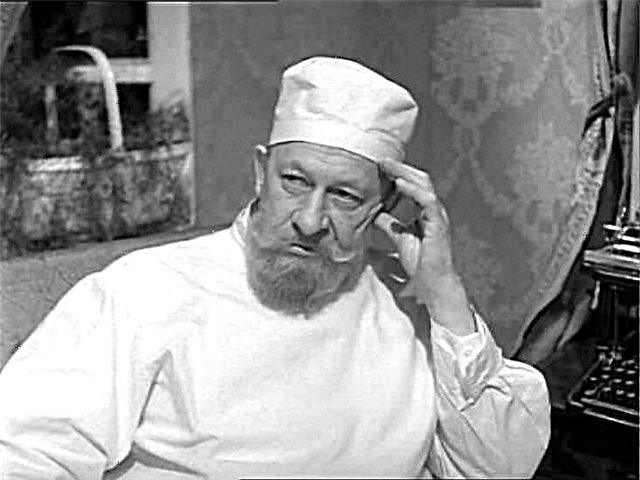
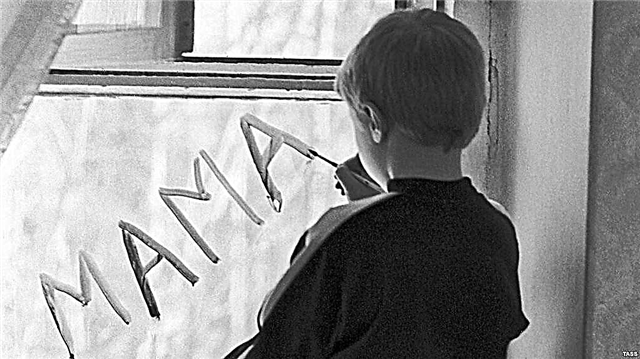
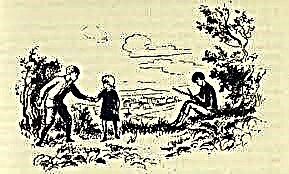
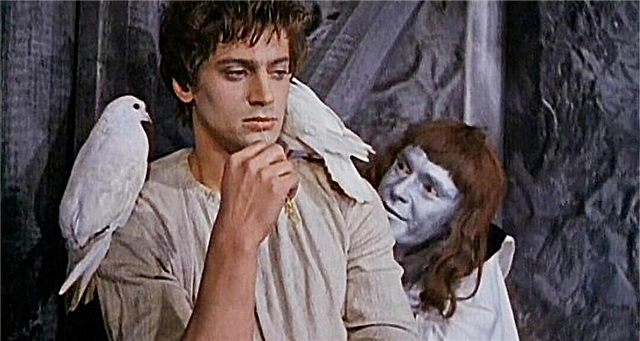 City of masters
City of masters